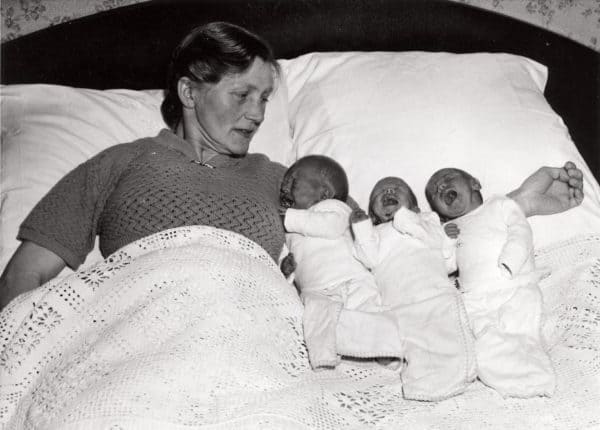
 Multiple children equals more health risks.
Multiple children equals more health risks.
New research published in the journal Circulation has found a link between the number of children in a family and the risk of heart disease and diabetes for both parents.
The study looked at 500,000 people in China and found statistically significant relationships between the number of women who experienced multiple pregnancies and an increased risk for developing atrial fibrillation later in life, a condition which can lead to blood clots, stroke and heart failure.
“It means that the risk decreases with one child, then increases with two or more children,” said Professor Vera Regitz-Zagrosek, chair of the European Society of Cardiology, who was not involved in the research. “In the AF study, a J-shaped relationship was not statistically significant, but this may be because it was in around 34 000 women and relatively small in comparison with the Chinese study.”
Perhaps the more surprising result was that this relationship held for men with more than one child, as well, a correlation that is being chalked up to the added stresses that can come with having multiple children, which can affect both the mother and father.
“The authors believe that socioeconomic factors are the explanation,” sats Regitz-Zagrosek. “Having one child is protective because parents have social support in older age. But if they have a large number of children this benefit goes away because it increases the economic and social pressure on the parents.”
Regitz-Zagrosek says that the health benefits of having children for mothers is likely to be in part connected to physiological changes associated with pregnancy which alter the body’s response to stress but that for men the likely factor is socioeconomic in origin.
The connection between health and parenthood has been studied for some time now, with the general consensus being that having children brings positive health benefits.
Being a parent may help lower blood pressure, for example, as having immediate, everyday chores to keep one occupied, along with the “greater purpose” for one’s life that parenthood brings, are thought to lower stress levels and blood pressure.
In terms of mental health, studies suggest that having children makes people overall happier than not having children and that parenting can make life more satisfying, especially in old age.
Yet the connection isn’t always straightforward.
A 2010 study in Norway found that men and women without children and even those with just one child were at increased risk of dying from a host of issues such as heart disease and respiratory problems in comparison to those who had more than one child.
There seems to be a happy middle ground, however, as researchers also concluded that having four or more children raised the risk of other problems like cervical cancer in women and violent deaths and fatal accidents in men.
In Canada, the average number of children per family has declined over the past century, from 2.7 children in 1961 to 1.9 in 2011. According to Statistics Canada, the number of children per woman is 1.61, a slight increase from 1.51 a decade earlier. Canada has not met the population replacement level of 2.1 children per woman since 1971.
Leave a Reply
You must be logged in to post a comment.



 Share
Share Tweet
Tweet Share
Share




Comment